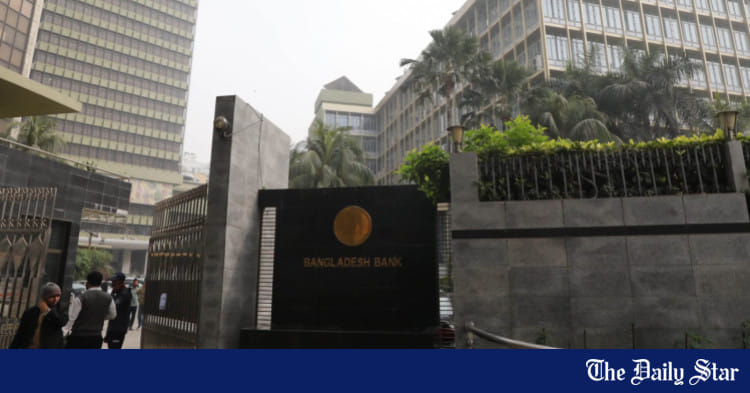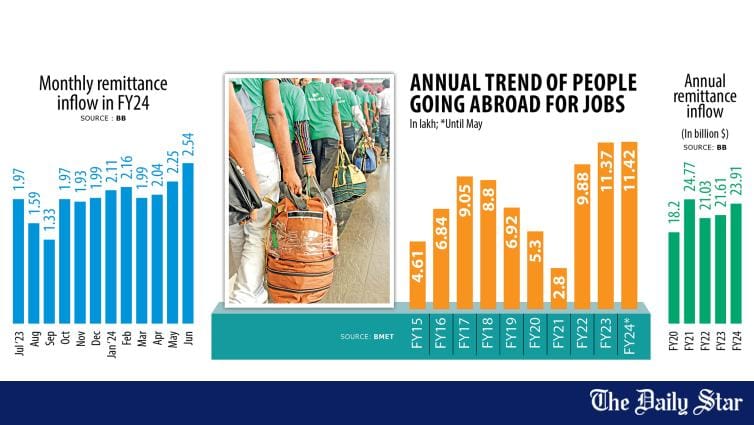Saif
Senior Member
- Joined
- Jan 24, 2024
- Messages
- 16,880
- Likes
- 8,153
- Nation

- Residence

- Axis Group


Economy can be brought back to pre-Covid state: FM
Finance Minister Mahmood Ali on Saturday said the economy of the country can be brought back to the pre-Covid state through implementing the fiscal measures envisaged in the FY2025 budget. Delivering his closing speech on budget in the House, the minister hoped that the implementation of the budge
Economy can be brought back to pre-Covid state: FM
Published :
Jun 29, 2024 20:45
Updated :
Jun 29, 2024 21:11

Finance Minister Mahmood Ali on Saturday said the economy of the country can be brought back to the pre-Covid state through implementing the fiscal measures envisaged in the FY2025 budget.
Delivering his closing speech on budget in the House, the minister hoped that the implementation of the budget would help continue the ongoing development spree aimed at materialising the Vision 2041, which envisages a prosperous and 'Smart' Bangladesh.
While formulating the budget for the 2024-25 fiscal year, the minister said, he has undergone the 'difficult' task of balancing between expansion and contraction to maintain the growth momentum and contain inflation.
Listing the fiscal policies to curb inflation, he said the repo rate was enhanced to 8.55 per cent, the interest rate was made market-based, and a crawling peg system was introduced for the foreign exchange rate.
All these steps will help keep inflation at 6.5 per cent in the next fiscal year, he hoped.
The minister said that in the last one and a half decades, the country has been enjoying over 6.7 per cent GDP and has emerged as the 33rd largest economy in the world.
In line with the electoral manifesto of the Awami League, huge steps were taken to improve the social and physical infrastructure, agriculture and food production, to ensure food security and to shore up resource mobilisaton, the minister pointed out, adding that, through these initiatives, the country will achieve the GDP target of 6.7 per cent in the midterm and the growth rate will reach 7.25 per cent.
He said the per capita income will reach 12500 dollars by 2041, and the poverty rate will come down to zero per cent in the country by that year.
Due to the inclusive economic policy, the government has been able to reduce the poverty rate to 18.7 per cent from 31.5 per cent, the minister mentioned.
He said the allocation for the social safety net is 12.3 Per cent higher in the proposed budget, and a massive food rationing programme is ongoing to enable low-income people to absorb the shock of the high commodity prices.
He also stated that a lot of measures are being taken to make tax administration efficient and people-friendly.
Several acts have been enacted in this regard, including the Customs Act, which was amended recently and has been effective from June 6, this year, the minister said.
In the six ministries, online databases are installed to make the collection of indirect taxes more effective, he said.
The minister said that he has had consultation with different stakeholder groups before formulating the budget, and he sought the help of all in implementing the proposed budget.
Published :
Jun 29, 2024 20:45
Updated :
Jun 29, 2024 21:11
Finance Minister Mahmood Ali on Saturday said the economy of the country can be brought back to the pre-Covid state through implementing the fiscal measures envisaged in the FY2025 budget.
Delivering his closing speech on budget in the House, the minister hoped that the implementation of the budget would help continue the ongoing development spree aimed at materialising the Vision 2041, which envisages a prosperous and 'Smart' Bangladesh.
While formulating the budget for the 2024-25 fiscal year, the minister said, he has undergone the 'difficult' task of balancing between expansion and contraction to maintain the growth momentum and contain inflation.
Listing the fiscal policies to curb inflation, he said the repo rate was enhanced to 8.55 per cent, the interest rate was made market-based, and a crawling peg system was introduced for the foreign exchange rate.
All these steps will help keep inflation at 6.5 per cent in the next fiscal year, he hoped.
The minister said that in the last one and a half decades, the country has been enjoying over 6.7 per cent GDP and has emerged as the 33rd largest economy in the world.
In line with the electoral manifesto of the Awami League, huge steps were taken to improve the social and physical infrastructure, agriculture and food production, to ensure food security and to shore up resource mobilisaton, the minister pointed out, adding that, through these initiatives, the country will achieve the GDP target of 6.7 per cent in the midterm and the growth rate will reach 7.25 per cent.
He said the per capita income will reach 12500 dollars by 2041, and the poverty rate will come down to zero per cent in the country by that year.
Due to the inclusive economic policy, the government has been able to reduce the poverty rate to 18.7 per cent from 31.5 per cent, the minister mentioned.
He said the allocation for the social safety net is 12.3 Per cent higher in the proposed budget, and a massive food rationing programme is ongoing to enable low-income people to absorb the shock of the high commodity prices.
He also stated that a lot of measures are being taken to make tax administration efficient and people-friendly.
Several acts have been enacted in this regard, including the Customs Act, which was amended recently and has been effective from June 6, this year, the minister said.
In the six ministries, online databases are installed to make the collection of indirect taxes more effective, he said.
The minister said that he has had consultation with different stakeholder groups before formulating the budget, and he sought the help of all in implementing the proposed budget.




